BACKGROUND
The Osteosarcoma Institute (OSI) was established in November 2017 to develop a comprehensive strategy that will lead to major improvement in the life expectancy of patients with relapsed and metastatic osteosarcoma. To further this goal, the OSI is seeking Letters of Intent (LOI) for grant proposals to conduct clinical, correlative, and translational studies.
GRANT CATEGORIES AND APPLICATION GUIDANCE
Clinical trials (up to $800,000 over two to three years): The primary objective of clinical studies should be to improve event free survival (EFS) at 4 months, beyond historical rates known to be in the range of 12%. The proposed study may be carried out in a single institution, a clinical trial consortium, or through an existing clinical trial infrastructure. OSI will not prioritize the launch of new infrastructures to conduct clinical trials. Please provide specific timetables for protocol development, regulatory approvals, industry agreements, IRB approvals, activation, accrual, and reporting. We will consider the applicant’s history of efficiently executing agreements, opening trials, and meeting accrual expectations for studies of relapsed osteosarcoma patients, with the expectation that results will be available within three years of study initiation. Other desirable characteristics for proposals include:
- Answering an important question
- Strong preclinical rationale
- Rigorous trial design and correlative endpoints to allow for productive failure
- Budget reasonableness (per patient and total)
- Leverage from concurrent financial support of the trial (e.g., direct institutional support, industry and/or philanthropic support, securing drug, etc.)
Correlative studies ($250,000 – $500,000 over two years): Correlative studies should seek to generate data in support of clinical studies seeking to improve event free survival (EFS) of recurrent and metastatic osteosarcoma patients. Our highest priority for correlative science proposals are those that will create the opportunity, should the associated clinical study fail, to understand the reasons for that failure, and allow for productive iteration of the approach. Nonetheless, proposals may include hypothesis testing and/or exploratory, hypothesis generating elements, but all proposals should include/prioritize the following:
- The generation of new biology data that will improve our understanding of osteosarcoma metastasis and/or accelerate the launch of future clinical or translational osteosarcoma studies.
- Power analyses demonstrating the number of samples from patients needed to answer each biological question proposed to be answered, and the rationale for asserting that the required samples will be obtained.
- Preliminary data demonstrating technical ability to apply desired technology for biological analysis to relevant osteosarcoma biospecimens.
- For exploratory or hypothesis-generating studies, testing a new technology’s ability to provide information on a specific question relevant to the associated clinical trial.
Translational studies (up to $500,000 over two years): Features of an optimal preclinical dataset for osteosarcoma metastasis drug development have been reported (Khanna et al, Clin Can Res 2014). Briefly, an ideal dataset would have the following features:
- A drug target demonstrated to be relevant in osteosarcoma, rigorously and mechanistically tested in multiple preclinical models across preclinical model species, and in human osteosarcoma cells and/or lesions.
- The availability of a therapeutic candidate or drug suitable for preclinical studies and future human translation; a testable PD marker of effective drug exposure.
- A correlative biomarker that may be translated to human patients in support of optimal dosing.
Please note, applicants are encouraged to describe how their proposal will contribute to the establishment of such a dataset, either by addressing existing gaps or otherwise.
FOR ALL GRANT CATEGORIES
Indirect costs may not exceed 10%.
Applications must be submitted through Proposal Central. Applicants should visit https://proposalcentral.com, create an account, if necessary, and login. Then, select the “Grant Opportunities” tab and enter “Osteosarcoma Institute” in the search box. The application form is available by clicking “Apply Now” on the appropriate line: Phase 2 Clinical Trial in Recurrent Osteosarcoma Patients, Correlative Science Supporting Clinical Studies, or Translational and Preclinical Research in Osteosarcoma.
Timeline:
- LOI proposals are due Tuesday, November 15, 2022
- LOI reviews will be completed and invitations to submit full proposals will be issued mid-January 2023
- Full proposal submissions will be due Friday, April 14, 2023
- Awardee notifications estimated June 2023
Note: The following application procedures and timeline constitute the primary OSI grantmaking cycle, which is the preferred method of applying for a grant. OSI recognizes that not all projects are compatible with these time restrictions; accordingly, we consider out-of-cycle proposals on a case-by-case basis. Visit here for more information on off-cycle funding.
Published by the Osteosarcoma Institute on September 1, 2022.
